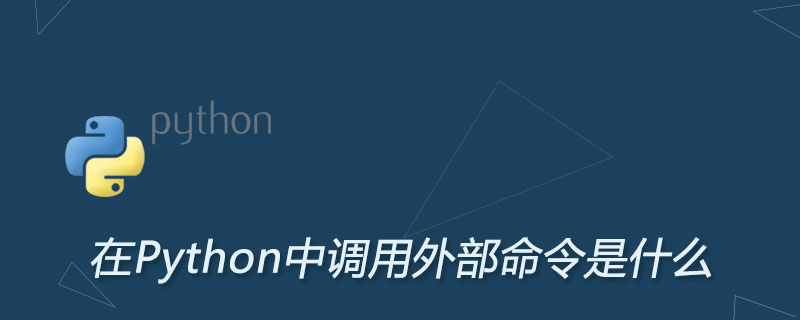Home > Article > Backend Development > What is calling external commands in Python

Method 1: os.system
Directly use os.system("command") to execute external programs , returns the program end return code (normal 0/1 error), which is actually implemented using the C standard library function system(). This function needs to reopen a terminal when executing the command command, and cannot save the execution result of the command command.
Disadvantages: The program output stdout cannot be obtained. The output stdout cannot be stored in an array like PHP's exec(string $command [, array &$output [, int &$return_var ]] ).
Method 2: os.popen
popen actually obtains the output result after the command is run and stores it in a temporary file. Use the command:
os.popen(command [, mode, bufsize])
The actual principle is to open a pipe with the command process. The return value of this function is a file object that can be read or written (determined by mode, the default mode is 'r'). If mode is 'r', you can use the return value of this function to call read() to obtain the execution result of the command command.
Supports line-by-line analysis of the following example code:

Also supports p.readlines(), for line in p and other file processing methods.
Method 3: commands.getstatusoutput
Use command: status, output = commands.getstatusoutput(command)
Actually use the os.popen() function to execute the command command And returns a tuple (status, output), respectively representing the return status and execution result of command command execution. The execution of command is actually in the manner of {command;} 2

The above is the detailed content of What is calling external commands in Python. For more information, please follow other related articles on the PHP Chinese website!